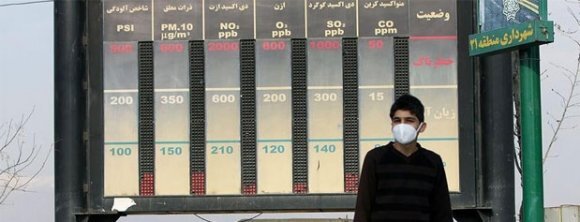Solar air quality monitoring device produced domestically

TEHRAN – An Iranian knowledge-based company has succeeded in designing and producing a solar air quality monitoring device.
This device is able to monitor ambient air pollutants, noise pollution, odors, and atmospheric parameters. It works with solar energy and provides air monitoring information online and offline without the need for city electricity.
It also provides information on urban air pollution including PM2.5 and PM10 and polluting gases (O3, CO, NO2, SO2, and VOC), and meteorology (temperature, humidity, air pressure, sound, wind speed, and direction) which were measured before by foreign samples.
The device provides information on polluting gases, meteorology temperature, humidity, air pressure, sound, wind speed, and direction. The whole process of design, electrical board, computer programming, online site, and assembly is done domestically and by young researchers in the country, ISNA reported on Sunday.
Similar products are produced by countries such as China, Japan, Germany, Italy, and France.
The ambient air quality monitoring device saves more than $600,000 of foreign currency annually.
Life-threatening environmental factor
Air pollution is one of the life-threatening environmental factors. The effects of air pollution on human health have long been considered, since the early 1990s, air pollution in cities, especially in the metropolises of developing countries, has been recognized as one of the most important environmental concerns in the world.
According to experts, airborne particles can cause short-term and long-term effects on the health of residents of polluted areas. Air pollution has diverse impacts on different people, which appears more on vulnerable groups such as children and the elderly.
Three million people die of air pollution each year, and in some countries, the number of people who die from the same factor is higher than the number of victims of traffic accidents. Air pollution is one of the most important preconditions for sustainable development due to its implications for the living conditions of future generations, which may be affected by many potential factors.
Air pollution kills 7m people worldwide
Air pollution is the contamination of the indoor or outdoor environment by any chemical, physical or biological agent that modifies the natural characteristics of the atmosphere. Household combustion devices, motor vehicles, industrial facilities, and forest fires are common sources of air pollution. Pollutants of major public health concern include particulate matter, carbon monoxide, ozone, nitrogen dioxide, and sulfur dioxide.
Outdoor and indoor air pollution cause respiratory and other diseases and is an important source of morbidity and mortality.
Air pollution kills an estimated seven million people worldwide every year. WHO data shows that almost all of the global population (99%) breathe air that exceeds WHO guideline limits containing high levels of pollutants, with low- and middle-income countries suffering from the highest exposures.
Air pollution is responsible for around 40,000 premature deaths in Iran annually, Mohammad-Sadeq Hassanvand, head of the air pollution research center at Tehran University of Medical Sciences, said in July 2020.
From smog hanging over cities to smoke inside the home, air pollution poses a major threat to health and climate. The combined effects of ambient (outdoor) and household air pollution cause millions of premature deaths every year, largely as a result of increased mortality from stroke, heart disease, chronic obstructive pulmonary disease, lung cancer, and acute respiratory infections.
FB/MG
